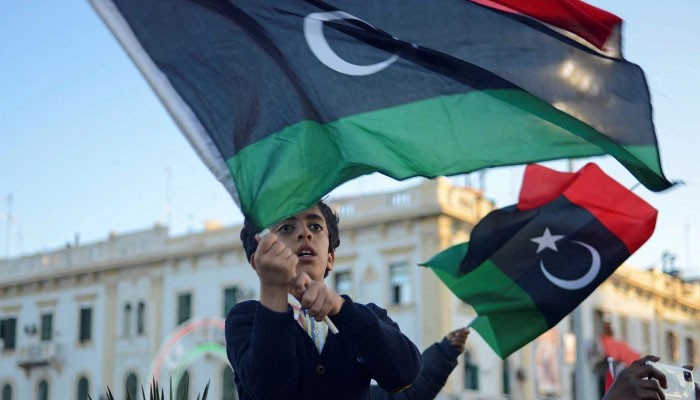Security tension in Tripoli and Zawiya threatens a return to the cycle of violence

Violent clashes erupted on Sunday in the Libyan capital Tripoli between a number of militias affiliated to the national unity government led by Abdul Hamid Dbeibeh and the Presidential Council but they were quickly surrounded. Such confrontations raise fears about the return of the country, especially the western region, to the violence box despite the efforts of the United Nations and regional countries to hold elections and achieve political progress.
Tripoli’s districts of Ras Hassan, Jaraba, Farnaj Island and the northern entrance to Ain Zara saw clashes between forces from the Deterrence Bureau, an anti-crime and anti-terrorism unit headed by Abdel Raouf Kara. The Presidency Council and the 444th Brigade, headed by Mahmoud Hamza, is part of the national unity government, before residents and witnesses confirmed the return of stability, calm and withdrawal after military vehicles.
According to the data, the fighting started after groups of Radaa arrested a prominent leader from the 444th Brigade amid mobilization from both sides. Military vehicles were deployed in the streets, and a number of masks were positioned on the roofs of buildings, shooting was heard, in addition to some bombs falling.
One person was wounded in the clashes, the government’s emergency services said in a statement.
“All roads are open, and traffic has returned to normal, especially Ain Zara road, Jamia road, Jaraba street, Ras Hassan area and Salaheddine road in the capital,” the Tripoli Security Directorate said in a statement, without giving details about the cause of the clashes or the damage.
In recent days, demonstrations have taken place in several areas of Tripoli against “the presence of armed groups in residential neighborhoods, and the practice of some of them as criminals,” according to statements released by protesters.
Militias, mercenaries and foreign forces remain the most prominent challenge to the political process in Libya, despite international and international calls to settle these issues. However, it seems that waging them will still face maneuvering and procrastination by some of the political forces that benefit from the phenomenon of the chaos of weapons.
The United Nations envoy to Libya, Abdoulaye Bathilly, has repeatedly called for the disbanding of militias, the removal of mercenaries and the unification of state institutions, including the military, to confront the phenomenon of arms chaos, which had worsened after the fall of the regime of former Libyan leader Muammar Gaddafi more than a decade ago. He considered these phenomena to be among the most important reasons for the continuation of the crisis.
Despite these obstacles, the Joint Committee for the Preparation of Electoral Laws in Libya (6+6), held in Bouznika, Morocco, announced on Tuesday the achievement of a complete consensus on a number of issues related to the holding of elections in the country, which restored hope for the possibility of unifying Libya and overcoming the political deadlock.
In Zawiya, the security situation continued to deteriorate, following the escalation of campaigns carried out by the government of Dbeibeh to target what it says are smugglers. On Sunday, two people were killed and others were injured in an attack by a drone, believed to be Turkish, on targets around the city.
Ali Abu Zureiba, a member of parliament from Zawiya, 45km west of Tripoli, said his brother was wounded in a raid on the port, which is located about 10km from the city, adding that his house was also targeted in one of the strikes.
Zawiya has suffered from prolonged insecurity, with pro-unity government and armed militias vying for control and influence, prompting residents to demonstrate against the growing lawlessness and crime and call for the expulsion of the militias.
The city has also come under criticism from the European side for being home to human traffickers and fuel and drug smugglers.
The air strikes ignite a dispute between the speakers of the two houses of parliament, Aqeela Saleh, the Supreme State Council’s Khaled al-Mashri and the head of the government of Dbeibeh’s unity. Al-Mishri, in a statement published by the House on his Facebook page on Friday evening, announced his refusal to employ Dbeibeh, in his capacity as Minister of Defense of the Air Force, “to settle political scores against parties with him politically on a noble pretext such as fighting crime”.












